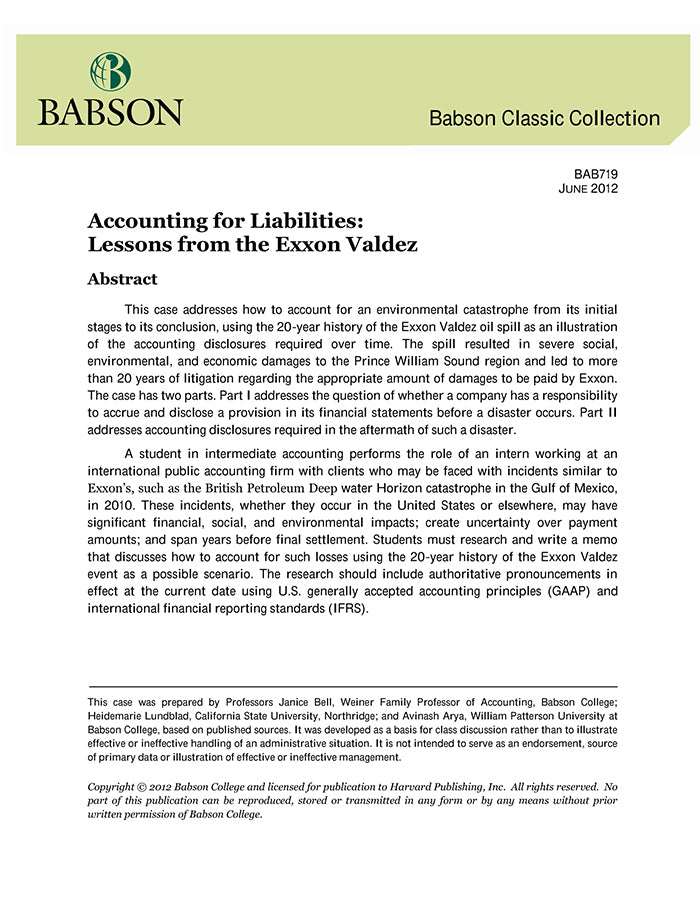Accounting for Liabilities: Lessons from the Exxon Valdez
受取状況を読み込めませんでした
This case addresses how to account for an environmental catastrophe from its initial stages to its conclusion, using the 20-year history of the Exxon Valdez oil spill as an illustration of the accounting disclosures required over time. The spill resulted in severe social, environmental, and economic damages to the Prince William Sound region and led to more than 20 years of litigation regarding the appropriate amount of damages to be paid by Exxon. The case has two parts. Part I addresses the question of whether a company has a responsibility to accrue and disclose a provision in its financial statements before a disaster occurs. Part II addresses accounting disclosures required in the aftermath of such a disaster. A student in intermediate accounting performs the role of an intern working at an international public accounting firm with clients who may be faced with incidents similar to Exxon's, such as the British Petroleum Deepwater Horizon catastrophe in the Gulf of Mexico, in 2010. These incidents, whether they occur in the United States or elsewhere, may have significant financial, social, and environmental impacts; create uncertainty over payment amounts; and span years before final settlement. Students must research and write a memo that discusses how to account for such losses using the 20-year history of the Exxon Valdez event as a possible scenario. The research should include authoritative pronouncements in effect at the current date using U.S. generally accepted accounting principles (GAAP) and international financial reporting standards (IFRS).
【書誌情報】
ページ数:6ページ
サイズ:A4
商品番号:HBSP-BAB719
発行日:2012/6/1
登録日:2013/7/23


